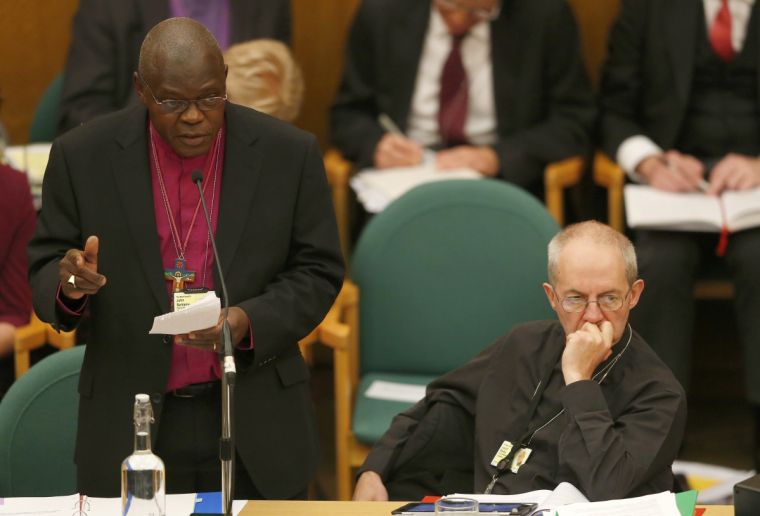Questions Of Gay Sex And Christian Faith Dominate As CofE Meets For Controversial Synod
The issue of sex and faith will dominate discussions at the Church of England's governing body this week, with bishops facing multiple challenges over their conservative stance on gay marriage.
A public question and answer session to the Church's top leaders on Monday night will be overrun by the issue with points on sexuality taking up more than a third of all questions.
Normally focusing on a variety of topics from finance to outreach, the level of scrutiny on sexuality highlights the extent of controversy within the Church.

A recent bishops' report refused to change teaching that marriage was exclusively between one man and one woman.
It promised 'maximum freedom' for gay couples within current laws and called for 'a fresh tone and culture of welcome and support' for LGBT people.
As many as 26 out of 73 questions to bishops on Monday night will focus on sexuality with campaigners on both the liberal and conservative side asking bishops to clarify their views.
A number of questions focus on the omission of bisexual, transgender and intersex people from the report with Canon Priscilla White asking what work was done to understand the issues facing these groups.
In a written response the Bishop of Norwich said the report was 'was right to avoid treating diverse groups as if they were all one category, even though we recognised that they have interests in common.
'The question does demonstrate that there remain many issues concerning human sexuality that could keep us busy for some time to come.'
Here's my hotel room number for the week of General #Synod. I couldn't possibly comment. pic.twitter.com/wzmDwLrFnA
— Paul Bayes (@paulbayes) February 12, 2017
The Church's leaders are now facing accusations from colleagues of marginalising gay Christians in their report.
Over the weekend one rebel, Bishop of Buckingham Alan Wilson, joined 19 retired bishops in signing a letter saying the Church had not listened to gay people and the pain they feel.
'Our perception is that while the pain of LGBT people is spoken about in your report, we do not hear its authentic voice,' the bishops write.
'The result of that focus on the issue of a change in the law is that your call for a change in tone and culture, while absolutely right, does not carry conviction.'
They accuse current leaders of seeing 'their task as managing – rather than perhaps enabling or leading – the conflicts that are bound to occur'.
The unusual intervention of past leaders on current proceedings was led by former Bishop of Worcester Peter Selby, who went as far as saying the report marked a 'betrayal'.
He said: 'The people who entered those conversations who were gay or lesbian, or had had various difficult experiences in their lives because of their sexuality, they entered those conversations knowing that they would have to reveal themselves in a circumstance in which that might carry a price in terms of their life and their career.'











